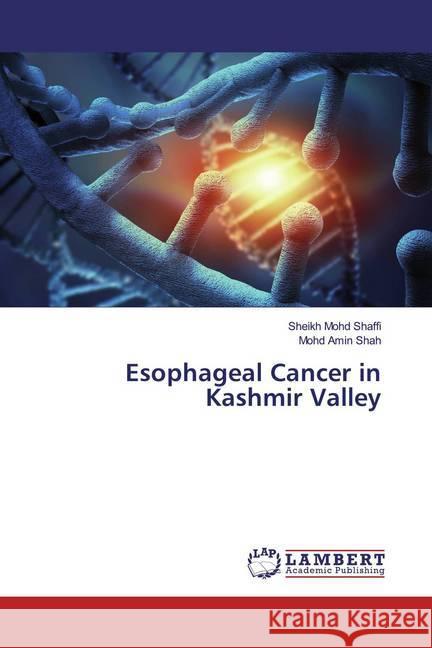Esophageal Cancer in Kashmir Valley » książka
Esophageal Cancer in Kashmir Valley
ISBN-13: 9786200004178 / Angielski
Cancer epidemiology has revealed a large variation in the cancer incidence among different populations of the world. Moreover, not all the individuals of a population are equally susceptible to a particular cancer despite same ethnicity, dietary habits, life style and environmental factors. This has been attributed to the genetic polymorphisms of a number of genes such as xenobiotic metabolizing, DNA repair, immunity, inflammation, hormone metabolism and nucleotide metabolism. As true of other cancers, esophageal cancer is a heterogenous disease and its molecular pathogenesis as well as the risk factors varies among different ethnic populations inhabiting distinct geographical regions of the world. Kashmir valley, located in the The 'Asian cancer esophagus belt' has been reported as a high incidence region for esophageal cancer. The suspected risk factors for esophageal cancer among Kashmiri population have been attributed to their dietary habits despite the lack of epidemiological studies. The dietary habits include an excessive intake of salted alkaline tea, consumption of dried and smoked fish, dried and pickled vegetables, excessive use of red chillies etc.











